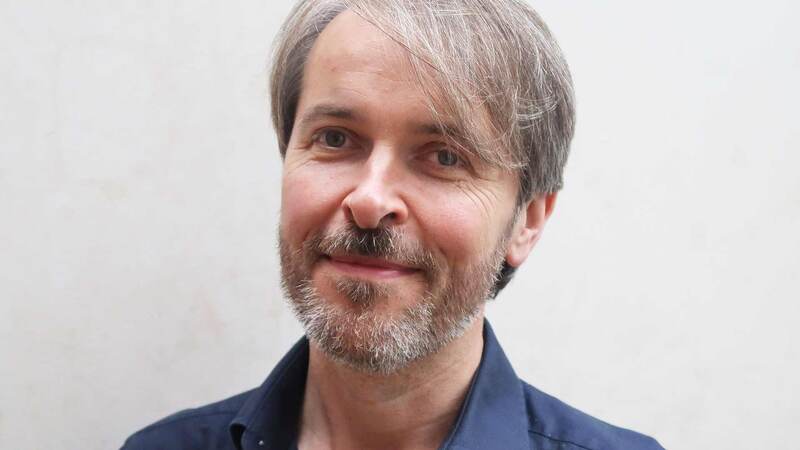You are viewing your 1 free article this month. Login to read more articles.
Dr Gwen Adshead | 'I wanted to write something that could be read by a lay person'
 Caroline Sanderson
Caroline SandersonCaroline Sanderson is a non-fiction writer, editor and books journalist. Her books include a travel narrative, A Rambling Fancy: in the F ...more
Dismantling the boundary between ’good’ and ’evil’, Dr Gwen Adshead advocates a nuanced approach to the understanding of violent offenders

Caroline Sanderson is a non-fiction writer, editor and books journalist. Her books include a travel narrative, A Rambling Fancy: in the F ...more
"I have spent decades working with people who have caused horror and grief to others. I will tell horror stories in this book but I will also tell stories of change and recovery. It may surprise the reader that this is possible.” So writes forensic psychiatrist and psychotherapist Dr Gwen Adshead of her remarkable book, The Devil You Know: Stories of Human Cruelty and Compassion. Written with author, dramatist and former TV producer Eileen Horne, it brings us the anonymised, “mosaic” case histories of 11 patients she has worked with; including a father who sexually abused his sons; a woman who killed her care worker; and a man who stabbed a stranger in a café. Adshead aims to give us a “more honest response about the treatment of violence and those who perpetrate it”.
While it does not flinch from describing these crimes in detail, put from your mind any idea that The Devil You Know, set to be a BBC Radio 4 “Book of the Week”, is a true crime thriller. Instead, it is “a myth-buster of a book” (as Val McDermid has called it) which shows how these violent crimes came to pass, what was going on in the perpetrators’ minds at the time, and what might help them live more safely in future. Adshead’s powerful central message is that we and they are more alike than we are different. And she should know, having spent much of her 30-plus-year NHS career working with violent offenders, notably at Broadmoor Hospital in Berkshire.
When we meet via Zoom, I ask Adshead, the author of numerous academic books and papers, how she came to write her first title for general readers. “I wanted to write something that could be read by a lay person because violent crime and the nature of evil are subjects everyone has an interest in,” she tells me. The partnership with Horne came about because Adshead, unaccustomed to writing for non-academic audiences, initially struggled to create the kind of narratives such a book required. “Eileen is a friend, she’s a very old friend of my sister’s in fact. I was telling her about writing the book and how it was running into the sand, and she said: ‘Why don’t I help you?’ Her dramatic skills helped me get across the human nature of the relationship between therapist and patient, using fragments of different people I’ve worked with over the years to create these stories.”
By relating what happened to them before they committed their crimes, The Devil You Know compellingly illuminates what brought Adshead’s patients to such dark places in their lives. Typically, theirs are stories of deep early life trauma, of formative years in and out of care, of PTSD, and of insecure childhood attachment, a circumstance of which Adshead has made a particular study. Very often, one of her first questions to a patient is: “Where do you think this story starts?” I tell her how struck I am by this question. “Well I think it’s true of medicine in general, that we always meet somebody somewhere in the story of their life. Whenever I see a patient, I remind myself that they are in the midst of that story and I’m just someone they meet on the road. It’s like Dante writes in The Divine Comedy: ‘In the middle of the journey of our life, I came to myself, in a dark wood, where the direct way was lost.’”
Throughout The Devil You Know, Adshead, who chose “the biggest possible volume of collected poetry we can find on the planet” for her takeaway book when she appeared on “Desert Island Discs” in 2010, uses such quotes from literature to enlighten her work. She reads widely both for instruction and for pleasure: her publicist at Faber sends me a list of her favourite books she compiled for the journal of The Royal College of Psychiatrists, which includes Regeneration by Pat Barker and Tinker Tailor Soldier Spy by John le Carré alongside more academic works. I ask her why she thinks the words of other writers so often chime with her professional work. “Before there was any psychiatry or psychology we had poets, prose and plays. The Ancient Greek tragedies portray some of the same things that my patients have done, and ask us to engage with precisely the kind of existential challenges that they face”, she responds. Another mantra is this line from Shakespeare, spoken by Macbeth after he has murdered Duncan: “I am afraid to think what I have done; Look on ’t again I dare not.” So often, says Adshead, her job is exactly that: to help her patients look at what they have done, and find a way to move beyond it.
Some may find it hard to imagine why anyone would want to engage daily with this kind of darkness and deep trauma. But as she stated on “Desert Island Discs”, Adshead regards hers as “the most interesting job that anybody could have, because you get to deal with the big themes of life”. She aspired to be a doctor from childhood, and once qualified found herself engrossed by the moral dilemmas the practice of medicine often presents. “I was also very interested in the law and that’s what first got me into forensic work, because the law is one way we decide these ‘should’ questions. Should this baby live? Should this man be allowed to refuse treatment? These are extraordinary human questions.”
What is remarkable about The Devil You Know is the way it helps the reader move beyond the initial horror of reading about what human beings are capable of, to a place of “radical empathy” in which the humanity of the people we encounter comes to the fore. The book is the antithesis of the kind of true-crime reading which gratuitously details violent crimes but bring nothing to our understanding of them. The overwhelming emotion as you read is not horror but sadness, as Adshead intended. “There is no thrill, no frisson. Instead you realise how incredibly sad it is that these people have thrown their lives away, and sometimes those of other people as well,” she says.
What is also profoundly sad, and enraging, is that deep inadequacies in mental health provision so often lie at the root of these stories. The effect of sweeping financial cuts over the past decade, Adshead tells me (“you’ll get me ranting now”), is that “we have a mental health service that has a skeleton staff, making it very difficult to get any kind of psychological therapy. If you don’t meet the threshold for serious mental illness, you’ll just be told to go away. And that often now includes being suicidal. The terrible irony is that if you commit a very serious offence when you are mentally ill, you will get fantastic treatment.”
Just as there are now books which urge us to reconsider our hitherto skewed and polarised views of gender and race, The Devil You Know asks us to rethink another binary, that between good and evil; in defiance of former prime minister John Major’s famous pronouncement that, “Society needs to condemn a little more, and understand a little less”. Reading about the crimes of those in The Devil May Care may stiffen your resolve to do just that. Or you may do what Adshead hopes, and challenge yourself to take some “deep dives down to where dark stories hold much enlightenment”.
Book extract
Over the years, I’ve come to think of my patients as survivors of a disaster, where they are the disaster and my colleagues and I are the first responders. I meet them at a turning point in their lives and help them to come to terms with a new identity, which may feel indelible: as one of my patients memorably put it, ‘You can be an ex-bus driver but not an ex-murderer”.









